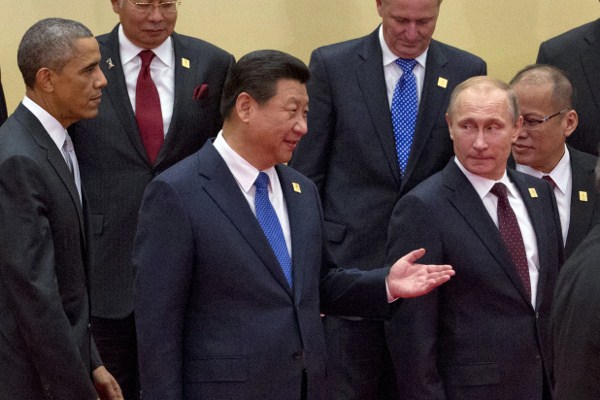This year has seen a remarkable strengthening of Russian-Chinese ties, building on a relationship that even before 2014 was at its historical best. Their growing closeness is evident in their security policies, economic ties and ideological alignment. U.S. policies presume that Russia and China can be successfully managed through a combination of firmness and patience, but there needs to be greater recognition of how these countries jointly present a more challenging environment for U.S. foreign policy.
In an underappreciated interview with The Economist this August that focused mostly on Africa and the U.S. economy, U.S. President Barack Obama made revealing remarks about the two countries that reflect attitudes common in Washington.
Obama believed that Russian President Vladimir Putin was exploiting Russian nationalism and chauvinism to make immediate political gains to the detriment of his country’s long-term interests. He described post-Soviet Russia as essentially a “has been” superpower that, due to its limited hard and soft power, presents “what are effectively regional challenges” rather than a global threat. Overlooking its robust arms exports, he said that Russia “doesn't make anything” and, more accurately, cited Russians’ declining population, short life expectancies and limited attraction for immigrants.

